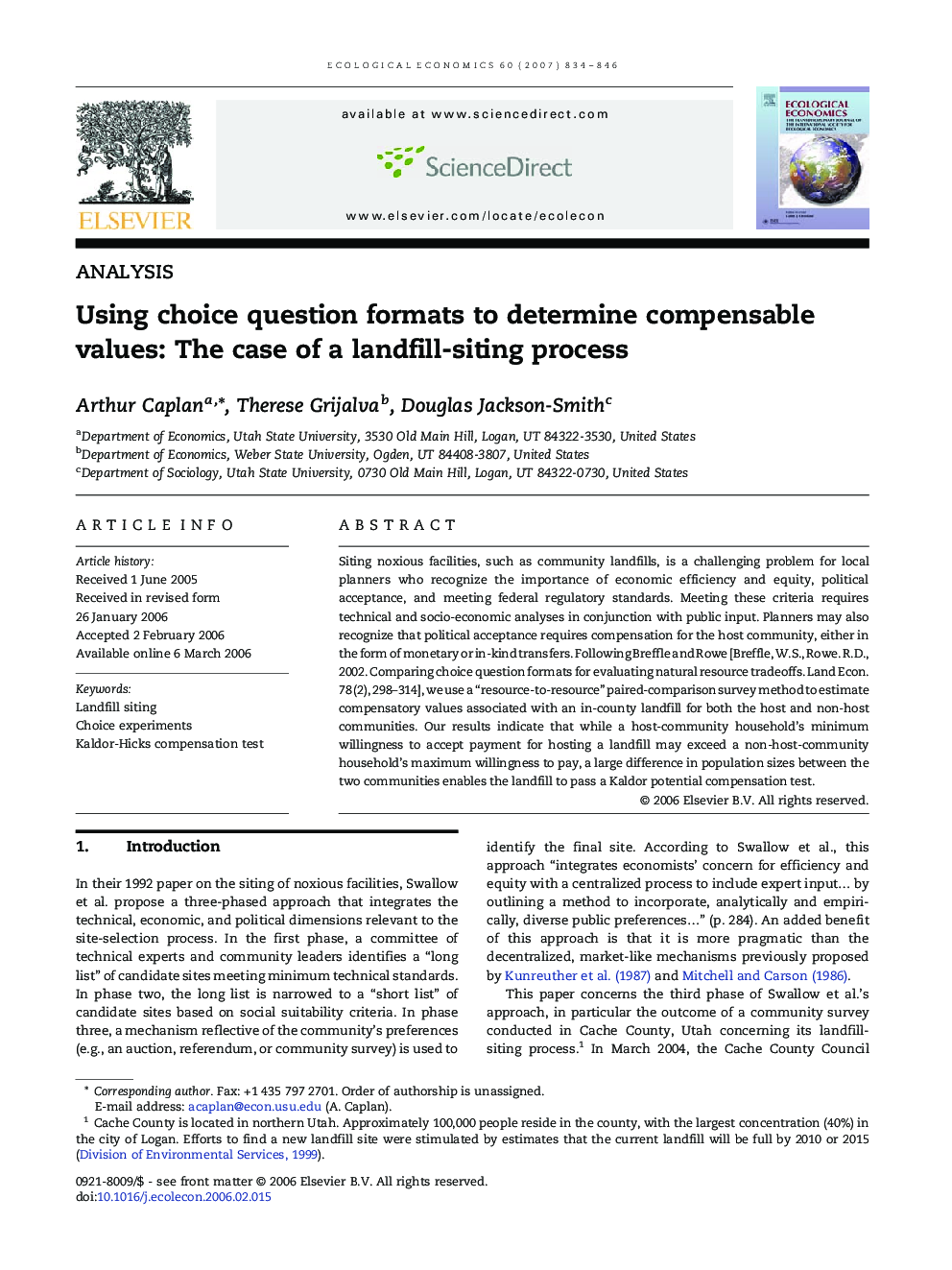| Article ID | Journal | Published Year | Pages | File Type |
|---|---|---|---|---|
| 5052300 | Ecological Economics | 2007 | 13 Pages |
Abstract
Siting noxious facilities, such as community landfills, is a challenging problem for local planners who recognize the importance of economic efficiency and equity, political acceptance, and meeting federal regulatory standards. Meeting these criteria requires technical and socio-economic analyses in conjunction with public input. Planners may also recognize that political acceptance requires compensation for the host community, either in the form of monetary or in-kind transfers. Following Breffle and Rowe [Breffle, W.S., Rowe. R.D., 2002. Comparing choice question formats for evaluating natural resource tradeoffs. Land Econ. 78 (2), 298-314], we use a “resource-to-resource” paired-comparison survey method to estimate compensatory values associated with an in-county landfill for both the host and non-host communities. Our results indicate that while a host-community household's minimum willingness to accept payment for hosting a landfill may exceed a non-host-community household's maximum willingness to pay, a large difference in population sizes between the two communities enables the landfill to pass a Kaldor potential compensation test.
Keywords
Related Topics
Life Sciences
Agricultural and Biological Sciences
Ecology, Evolution, Behavior and Systematics
Authors
Arthur Caplan, Therese Grijalva, Douglas Jackson-Smith,
